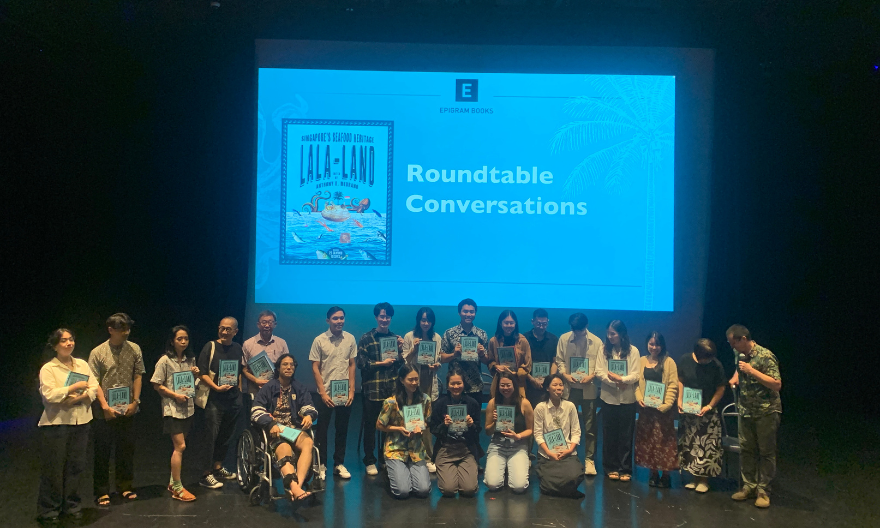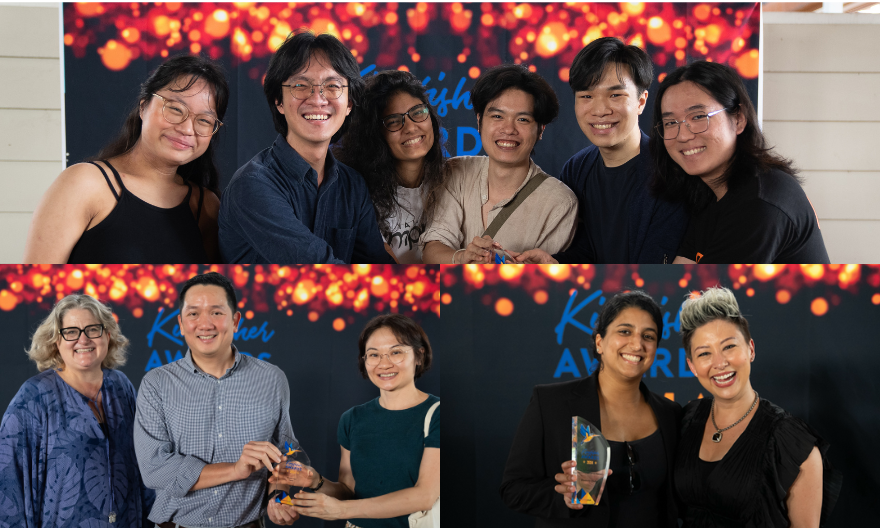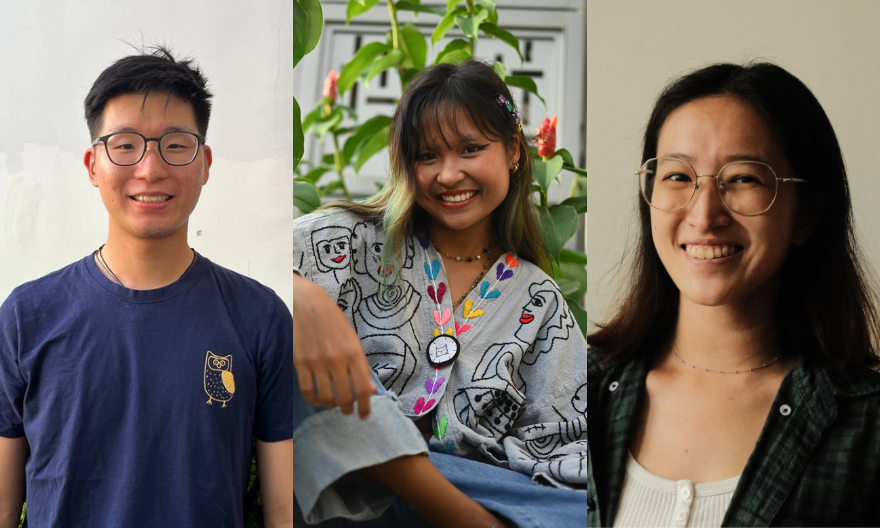Yale-NUS hosts a panel discussion on the roles of different actors in the arts ecosystem
Experts from the arts scene discussed the opportunities and challenges they faced and shared advice on working in the arts
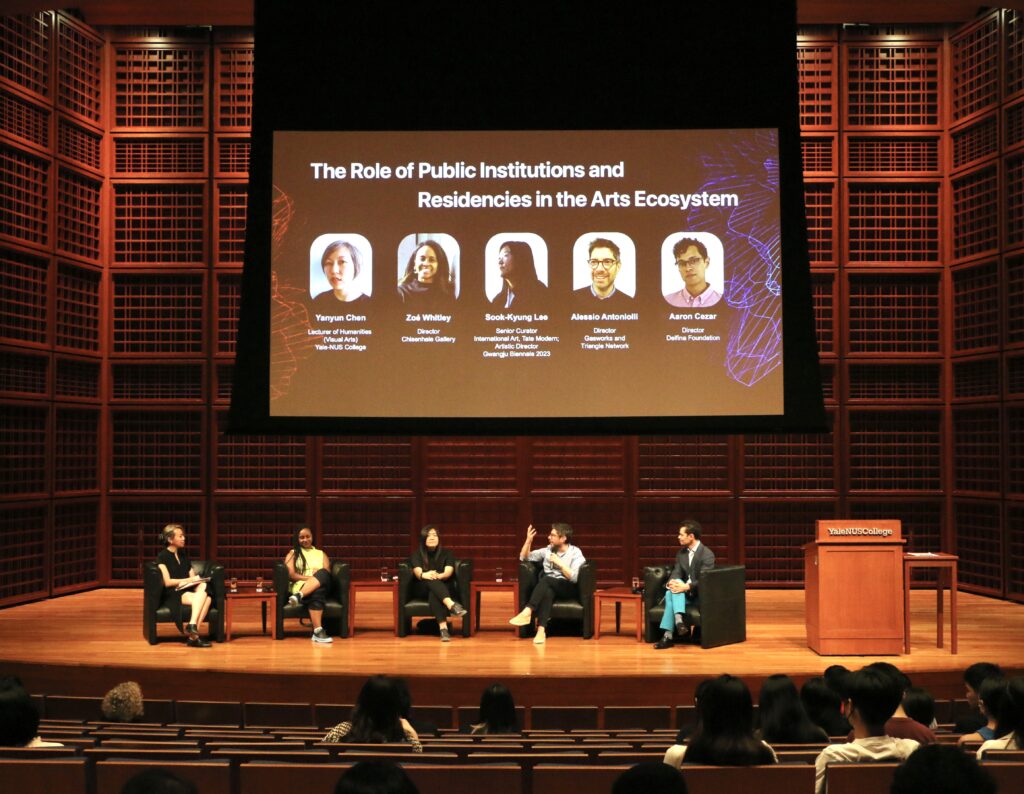 The speakers at the event (from left to right): Yanyun Chen (Moderator; Lecturer of Humanities (Visual Arts), Yale-NUS College), Zoé Whitley (Director at Chisenhale Gallery), Sook-Kyung Lee (Senior Curator of International Art at Tate Modern and Artistic Director at Gwangju Biennale 2023), Alessio Antoniolli (Director at Gasworks and Triangle Network), Aaron Cezar (Director at Delfina Foundation). Image by Desmond Lee from Yale-NUS College.
The speakers at the event (from left to right): Yanyun Chen (Moderator; Lecturer of Humanities (Visual Arts), Yale-NUS College), Zoé Whitley (Director at Chisenhale Gallery), Sook-Kyung Lee (Senior Curator of International Art at Tate Modern and Artistic Director at Gwangju Biennale 2023), Alessio Antoniolli (Director at Gasworks and Triangle Network), Aaron Cezar (Director at Delfina Foundation). Image by Desmond Lee from Yale-NUS College.
On 12 January 2023, Yale-NUS College hosted a panel discussion titled “The Role of Public Institutions and Residencies in the Arts Ecosystem” in partnership with The Institutum, a non-profit institution focused on expanding the horizons for art in Singapore and the region. The panel was helmed by four United Kingdom-based experts in charge of various galleries, exhibitions, and residencies.
Public institutions such as museums, galleries, and cultural centers play a vital role in the arts ecosystem by providing spaces for artists to showcase their work and engage with audiences. These institutions often have curatorial departments that select and organise exhibitions, and educational programmes that provide opportunities for the public to learn about and engage with the arts. Additionally, many public institutions offer artist residencies, which provide artists with time and resources to create new work, as well as the opportunity to engage with the community.
The panel speakers discussed the variety of resources and opportunities that residencies and galleries provide to artists. Aaron Cesar, the founding Director of Delfina Foundation, described how Delfina Foundation would arrange a series of gatherings with people from the arts industry to have a conversation with their resident artists. “Discussions ensue from these conversations, networks are forged, and ideas are taken further,” he passionately shared.
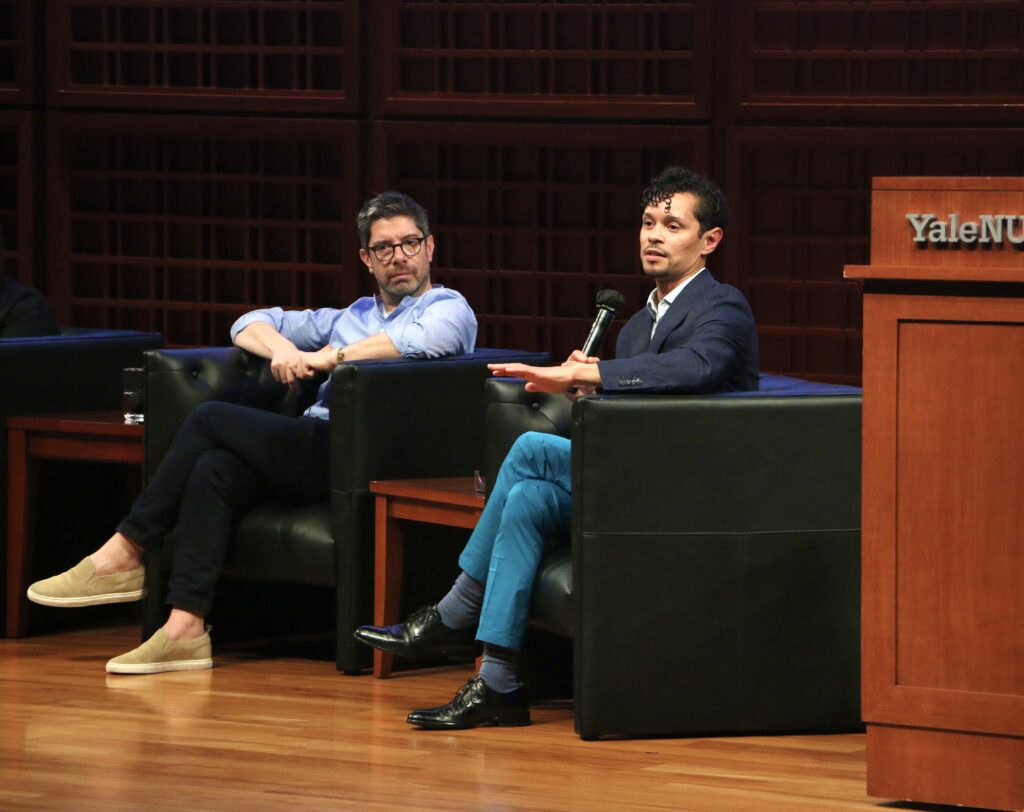 Aaron Cesar, on the right, sharing about Delfina Foundation. Image by Desmond Lee from Yale-NUS College.
Aaron Cesar, on the right, sharing about Delfina Foundation. Image by Desmond Lee from Yale-NUS College.
The speakers also discussed the challenges around their work organising residencies, commissions, and working in the arts ecosystem. Zoé Whitley, Director of Chisenhale Gallery in London, UK, reflected that during the COVID-19 pandemic, she and her team had to come up with new ways of making the projects and exhibitions come alive beyond the physical gallery, by commissioning online artists and launching publications.
Noting that “it takes work and commitment to preserve internationalism and cosmopolitanism”, she explained that while it was easier to work with people based in the UK they also put effort and resources to work with artists from around the globe.
Alessio Antoniolli, Director of Gasworks and Triangle Network, added that taking risks and trusting the artists to try new ideas is the key to progress in the field.
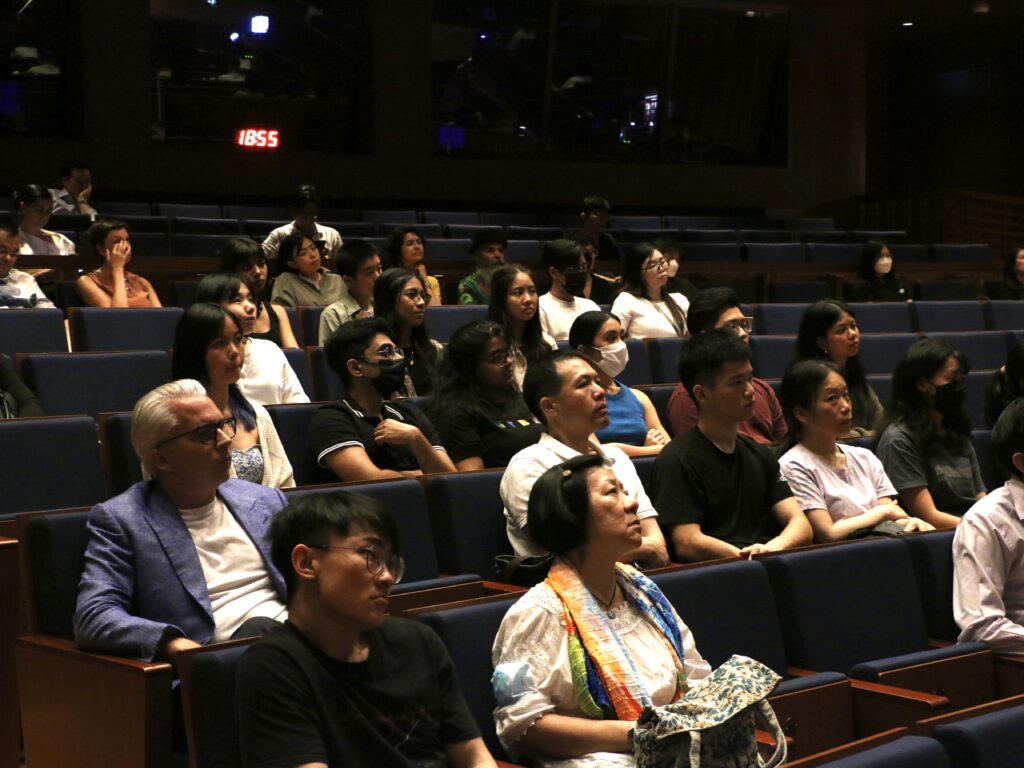 Audience members participated in a question-and-answer session. Image by Desmond Lee from Yale-NUS College.
Audience members participated in a question-and-answer session. Image by Desmond Lee from Yale-NUS College.
During the question-and-answer session, audience members inquired about the etiquette of approaching galleries and asked for advice on how to apply for residencies and get noticed by the arts community. Sook-Kyung Lee, senior curator of international art at Tate Modern and artistic director of Gwangju Biennale 2023, explained that setting up a small gallery with friends should be prioritised over cold approaches.
“It is not about socialising and networking, it is about your work – that needs to be good and you will get discovered,” Sook-Kyung Lee revealed.
Alessio Antoniolli advised the students to never give up when applying to residencies because it often does not work out the first time. He recommended that artists research well where they want to go and what the residencies can do for them.
The audience gained valuable insights into the ins and outs of the arts ecosystem, particularly in the context of the UK. Martin Choo (Class of 2023) shared that he attended the talk because of his keen interest in the evolution of Singapore’s arts scene through time:
“This talk was insightful as it showed how public institutions and residency programmes have the potential to play a more active role with artists. It makes me wonder what more Singapore can do to not only be a place where one can see and experience art but also a place where artists would actively create art.”
This event is supported by the Andreas Teoh Contemporary Asian Art Programme. More information about the programme and Dr Teoh’s gift to Yale-NUS College can be found here.

